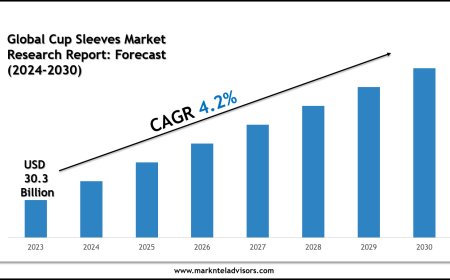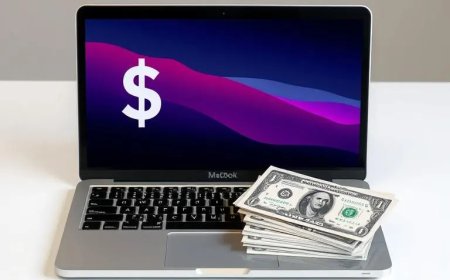Account Takeover Scams on Social Platforms
I want to walk you through what’s happening, how it works, and what I’m doing to protect myself using the PAS (Problem-Agitate-Solution) approach—because if you’re online (and I know you are), you need to know what you’re up against.
It started with a simple message: Hey, can you help me out? I just need a quick favor. At first glance, it looked like any other DM from a friend. But as I kept seeing more of these across my socialsfrom people I actually knowit hit me. This wasnt a coincidence. This was a trend.
Ive been spending more time online lately, juggling real estate research, market news, and some downtime with my best disposable vape nearby. In between all that, I noticed something offfriends accounts acting strange, pushing suspicious links, and asking for money or crypto investments. I knew something shady was going on, and sure enough, its part of a wider wave of account takeover scams thats hitting social platforms hard right now.
? The Problem: Scammers Are Taking Over Accounts
Lets start with what Ive actually seen.
Friends of minereal, everyday peopleare getting their social accounts hijacked. Once a scammer has access, they:
-
Message friends pretending to be in a crisis
-
Send fake investment opportunities that guarantee returns
-
Drop links that lead to phishing sites or malware downloads
-
Ask for donations using emotional or charitable language
Its not always easy to tell its a scam, especially when the message comes from someone you trust.
And heres the kicker: this isnt just a social issue. Its a cybersecurity threat thats bleeding into areas like online banking, trading platforms, and financial apps.
These scams arent targeting random people. Theyre targeting connectionsusing your relationships to gain access to more victims. Thats what makes it feel personal.
? The Agitation: Why This Scam Hurts More Than You Think
I used to think online scams were mostly for the careless or uninformed. Then I saw people I respecttech-savvy folksfall victim. That changed my outlook.
? Financial Traps Are Getting Smarter
These arent just click here for a prize schemes. Theyre full-on conversations.
-
Hey, I just made $5K in crypto using this new platform!
-
I need help covering a medical bill, can you send something quick?
-
I donated to this cause, and you should tooits secure!
Once you click or engage, its often too late. Either your info gets stolen, or malware installs itself quietly in the background.
I started recognizing how real this danger was when a buddy of mine almost sent money to someone impersonating his cousincomplete with matching profile pics and old conversation screenshots.
? Link Trust Is Eroding
It used to be easy: if a friend sent a link, Id click without thinking. Not anymore.
Now, I hover, I double-check, I copy and paste into incognito windows just to be sure. That might sound paranoid, but after seeing how these scams operate, Id rather take a few extra seconds than risk my data.
Even beyond personal loss, these links can:
-
Infect your device with spyware
-
Give scammers access to your financial logins
-
Hijack your accounts and lock you out entirely
? Pre-filled Platforms Are at Risk Too
With everything auto-savedpasswords, cards, contact infoyour accounts can unravel quickly once compromised. That includes shopping apps, food delivery, even real estate sites.
I realized how much was at stake when I noticed how easily my Pre-filled vape pen orders and payment info were stored without me even thinking about it. Its convenientbut risky when you factor in account takeovers.
? The Solution: How Im Fighting Back (Without Losing My Mind)
Im not here to tell you to unplug from social media or live in fear. Im still active, still chatting with friends, still sharing links. But Ive put some real safeguards in place, and theyve made a big difference.
1. Two-Factor Authentication Is My New Best Friend
If you havent enabled 2FA, do it now. Seriously.
-
It adds a second layerusually a code sent to your phone or emailbefore anyone can log in
-
Even if someone has your password, they cant get in without that second code
-
Most major platforms support it (Instagram, Facebook, Twitter, Gmailjust go into your settings)
This one move drastically cuts down your risk. Its not perfect, but it buys time and blocks most attacks.
2. I Never Click on Unverified LinksEven From Friends
Now when someone sends me a link out of nowhere, I:
-
Ask them a question only theyd know
-
Wait to see if their response feels real
-
Look at the URL carefullymisspellings and strange domains are red flags
If Im still unsure, I just dont click. Its not worth the gamble.
3. I Report and Move OnNo Guilt
If I see something sketchy from a friends account, I report it immediately.
-
Platforms rely on reports to shut down bad actors
-
It doesnt mean Im turning on my friendit means Im helping them
-
Once reported, I shoot them a text or email so they know whats going on
Early action can help them recover faster and stop the scam from spreading further.
4. I Use Password Managers and Rotate Often
Yes, remembering passwords sucks. Thats why I use a password managerit generates and stores strong ones, so I dont have to rely on MyDog123 for every login.
-
Each account has its own unique password
-
I rotate them every few months
-
I never use the same password across platforms (especially financial ones)
It takes a little setup, but its worth it for peace of mind.
?? My Day-to-Day Mindset Around Online Safety
The trick isnt to be scared. Its to be aware.
Im not a cybersecurity expert. Im just someone who uses the internet every day, shares memes, shops online, and does business digitally. But in todays world, thats all it takes to be a target.
So I think of online safety the same way I think of locking my front door or checking the stove before I leave the house. Its not paranoiaits routine.
? Help Others Stay Safe Too
Ive made a habit of gently warning friends when I see something off:
-
Hey, your account mightve been hackedjust a heads up
-
That message looked weird, might want to check your login
-
Let me know if you need help recovering your account
Were all in this together, and sometimes that heads-up can make all the difference.
? Wrapping It Up: Staying Secure in a Sketchy Digital World
Scams are getting more clever, more personal, and more convincing. But that doesnt mean were powerless. With the right habits, tools, and a little extra skepticism, we can protect our spacesand each other.
Key Takeaways
-
Account takeover scams are rising, with hacked profiles pushing fake links and donation pleas
-
These scams prey on trust, using real peoples profiles to spread further
-
Dont click random linkseven from people you knowwithout verifying first
-
Set up two-factor authentication, use a password manager, and report suspicious activity
-
Stay alert, stay kind, and dont fall for urgency or emotional manipulation
If Ive learned anything through this wave of scam attempts, its this: simple digital hygiene can go a long way. And while Im still sipping my coffee, scrolling through listings, and occasionally relaxing with my best disposable vape, Im doing it with one eye open and my guard just a bit higher.
Protect Your Accounts Like You Protect Your Wallet
We lock our homes, guard our bank cards, and double-check who were giving money to. Its time we treat our digital lives with the same care. Because in 2025, your account is more than a usernameits a gateway. And youre the one holding the keys.




































